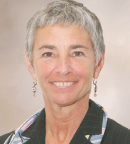
Robert M. Arnold, MD
Communicating effectively with patients with advanced cancer not only helps patients and their family members successfully transition to palliative and end-of-life care, it can prevent physicians from experiencing professional burnout, according to Robert M. Arnold, MD, Distinguished Service Professor of Medicine; Director of the Institute for Doctor-Patient Communication; Chief, Section of Palliative Care and Medical Ethics at the University of Pittsburgh; and Cofounder of VitalTalk (vitaltalk.org). VitalTalk is a nonprofit company that teaches advanced communication skills courses and faculty development courses to help clinicians deliver bad news and discuss goals of care in an empathic manner.
What constitutes an effective communication skill set? Over a decade ago, Anthony L. Back, MD, Professor of Medicine at the University of Washington in Seattle; Director of the Program in Cancer Communication at the Seattle Cancer Care Alliance; and a cofounder with Dr. Arnold of VitalTalk, defined effective communication “as the cognitive and emotional abilities used by clinicians to enable patients and their families to understand the nature of illness, to partner with patients to make sound medical decisions, and to facilitate patient and family adjustment to the illness.”1
“If I haven’t talked with patients about their values, their wishes for participation in decision-making, and how they want to live their life with cancer, it’s hard to recommend an effective treatment or end-of-life plan,” said Dr. Arnold. “Effectively communicating with patients in an empathic way isn’t just fundamental to providing good patient-centered care and reducing patients’ feelings of anxiety and depression, it is also essential in building a meaningful relationship with patients. And building meaningful relationships with our patients has the added benefit of helping physicians avoid burnout by reducing their own feelings of stress and sadness.”
Developing effective communication skills is so crucial to patient-centered oncology care, this past September, ASCO published a patient-clinician communication oncology consensus guideline in the Journal of Clinical Oncology.2 The guideline outlines best practices for communicating with patients about their cancer diagnosis and how to build rapport with patients to support them and help them cope with prognosis and treatment information.
Building a Six-Step Strategy for Delivering Bad News
Dr. Arnold recommends using a six-step strategy described in the mnemonic SPIKES to facilitate the gathering and delivery of information to determine the patient’s knowledge about his or her illness and expectations; provide information that matches the patient’s needs and desires; support the patient to reduce the emotional impact of receiving bad news; and develop a treatment plan that is in accordance with the patient’s values. It includes the following six steps:
- Setup: The physician is prepared with the patient’s medical facts and has a plan for delivering the news.
- Perception: Find out what the patient’s understanding is of the medical situation and how much information he or she wants.
- Invitation: Ask permission about whether now is a good time to discuss the news.
- Knowledge: Be direct in explaining the medical situation and use language that matches the patient’s level of education.
- Empathize: Use empathic statements to respond to a patient’s emotions. For example, “I know this must be disappointing for you.”
- Summarize and Strategize: Summarize the clinical information and make a plan for the next step, which may include further testing or a discussion about treatment options.
The ASCO Post talked with Dr. Arnold about the barriers to effective physician/patient communication, when to begin conversations about end-of-life care, and the benefits of effective communication for both patients and physicians.
Perfect Storm of Misinformation
Studies show that patients with advanced cancer want their oncologists to discuss end-of-life care with them, yet fewer than half of those patients initiate that conversation,3 and many oncologists have difficulty raising the issue with patients. What are some of the barriers preventing both oncologists and patients from beginning these discussions?
We are all ambivalent about what to do if the course of the disease does not go well because we all want it to go well. Data show that conversations we have with patients tend to focus on what we can do rather than on what we can’t do, because physicians want to do things to help patients get better and would rather not think about treatment not working.
We’ve created a perfect storm of misinformation, and the only way to fix the problem is to be clearer with patients about the limitations of medicine.— Robert M. Arnold, MD
Tweet this quote
In our society, cancer is marketed as a war and patients should never give up the fight; many cancer centers help perpetuate this view by advertising their program will provide more effective treatment for difficult-to-cure cancers. And news reports often tout drug results from clinical studies to make them sound like they always work, so patients have come to expect a miracle, because that is what they’ve been told. We’ve created a perfect storm of misinformation, and the only way to fix the problem is to be clearer with patients about the limitations of medicine.
Physicians go into the field of medicine because they want to help people, and our image and identity are focused on curing patients rather than on supporting them emotionally; and it can be difficult for physicians to transfer their focus on cure to end-of-life care. Also, we haven’t done a good job of normalizing these types of conversations and making them part of our routine discussions with patients to understand what patients may want if the course of their disease doesn’t go well.
If you normalize these conversations, most patients are willing to talk about their concerns. Just saying “I talk with all my patients about what their thoughts might be if treatment doesn’t go the way we hope, and I was wondering what your wishes are if treatment is ineffective against your cancer” may help to normalize end-of-life discussions, because most patients have thought about what they would like to do if treatment fails.
But having these conversations is difficult. It means physicians need to be comfortable with patients feeling sad, and that is very hard for many of us.
Establishing Meaningful Relationships With Patients
How is effective, empathic, and honest communication among clinicians, patients, and caregivers fundamental to patient-centered care?
It is difficult for me to determine the best care plan for patients if I don’t know what their values are and how they want to live their lives. And I won’t know those answers if I haven’t had that conversation with them. For most physicians, the most meaningful aspect of medicine is their relationship with patients. Establishing that bond is not just important to providing the best care for patients, it is what keeps us centered in our profession and keeps us from burning out.
Planning for the Future
When is the best time to initiate end-of-life discussions?
I wouldn’t call these end-of-life discussions. I would call them conversations to plan for the future. These conversations are meant to help us understand what is most important for the patient in terms of quality of life. The time to have this conversation is when the disease cannot be cured. I would not have this conversation on the first visit with a patient, but it should be built into the second or third visit at the latest.
Fostering Trust
What constitutes effective communication?
Effective communication is dialogue that allows physicians to be present with their patients and to engage in behaviors that actively foster trust. Some patients want to have these discussions, and others prefer that their physician talk with their significant others. In either case, it is important for physicians to bring a variety of skill sets to the conversation, such as empathy in response to a patient’s/spouse’s emotional concern. The physician should also elicit how much the patient understands about the medical situation and how much information he or she wants to know. Then, the physician should practice the teach-back method by asking patients to explain what they just learned to assess how much they understood.
Acquiring Effective Communication Skills
How can oncologists learn to be more effective -communicators?
They have to develop the skill the same way they would develop any other complex motor skill, through practice. Participating in role-playing activities in which physicians practice delivering bad news to simulated patients or actors; attending workshops or taking courses in communication skills; and recording interviews with patients for self-assessment are all ways physicians can become more effective communicators.
We received a Project on Death in America grant from the Open Society Institute, which we used to train oncologists to communicate more effectively with seriously ill patients. I teach a required course for internal medicine interns on giving bad news and discussing advance care planning with patients. We have also developed a course for critical care, nephrology, cardiology, palliative care, geriatric, neonatology, and pediatric intensive care fellows aimed at improving their communication skills at our institution, so there is more emphasis now on the importance of effective, empathic, and honest conversations between clinicians and patients.
When I received my medical training, there were no courses in patient communication. Now, there is a view that these are actual skills to be learned, and most medical schools have communications skills classes, so we are making progress in training physicians to be better communicators.
And oncologists have been in the forefront of developing these skills, because being empathic and careful listeners is at the core of what they do every day. ■
DISCLOSURE: Dr. Arnold is the cofounder and on the board of Vital Talk.
REFERENCES
3. Gesme DH, Wiseman M: Advance care planning with your patients. J Oncol Pract 7:e42-e44, 2011.
GUEST EDITOR

Jamie H. Von Roenn, MD
Addressing the evolving needs of cancer survivors at various stages of their illness and care, Palliative Care in Oncology is guest edited by Jamie H. Von Roenn, MD. Dr. Von Roenn is ASCO’s Vice President of Education, Science, and Professional Development.

